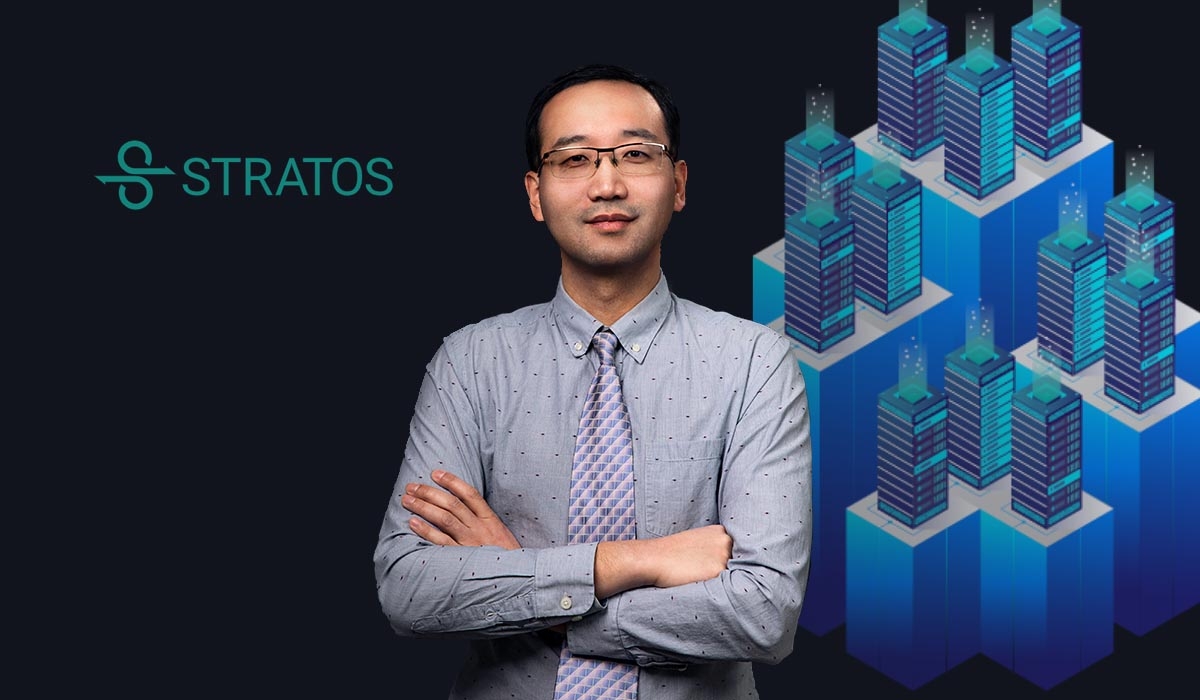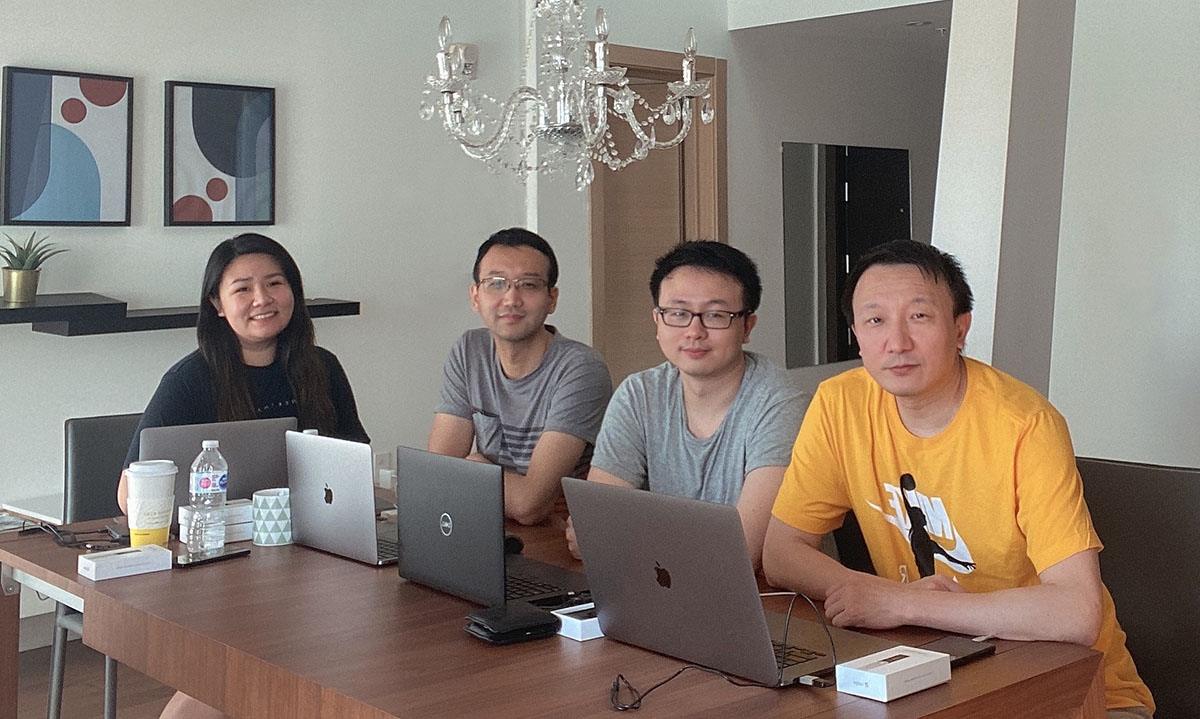
Stratos Networks announces $1.83M seed funding, aims to Decentralize the Internet to Decentralize the Data Mesh for Blockchain Industry
ABOVE: Bin Zhu, Founder, Stratos Networks.
Montreal-based company Stratos Networks is on a mission to decentralize the Internet, one component at a time. Having just announced last month a $1.83M seed round investment, Stratos Founder Bin Zhu wants to “change the world for the better,” he declares. “I know everybody in tech says that, but we believe our work really will change things and make the Internet safer and more about the individual. And, I really love Canada and want to do something for this great country.” He’s on course to doing just that.
Bin views blockchain as the big opportunity on the horizon. “We all have a boss, the boss has a boss, and there is the head office. Everything we do is centralized,” he explains. “We think blockchain and we think bitcoin. It is that, but blockchain gives us the chance to fully understand what decentralized means.” Decentralization is a revolution whose time has come, and a recent and widespread blackout of millions of websites illustrates why.
We all know that a handful of tech companies control a massive amount of content on the public-facing Web, and therefore a massive amount of your online activity, personal information, purchasing preferences and on and on. With every click, field entry and voice command, Facebook, Google, Twitter are getting to know what makes you tick, and those data inputs are making them very, very valuable. Their accounts are free because you the user are working for them, but we all know it and such is life on the Internet.
Then there’s the matter of personal privacy versus corporate control. We used to encounter advertising in a passive form, up on billboards, in your mailbox (the one by your front door), and in broadcast media. Today, it’s right there in the palm of your hand relentlessly conforming to your tastes, and it’s getting smarter with every advancement in AI. Individuality, regional identity, freedom of choice are all under threat on a global level. We all know this too, but what are you going to do about it? Decentralization pulls the plug on the Internet powers that be.

ABOVE: The Stratos Networks Core Team
Team Stratos is building on its strong capabilities and years of experience in top-notch enterprise-level infrastructure design and development into decentralized storage, database and computing services for the blockchain industry. “Decentralized computation, decentralized storage, and a decentralized database is what you need. Combining it is what we are doing, and all together we call it the Stratos Decentralized Data Mesh for Web. 3.0,” explains Bin.
The Stratos solution provides a trustless solution for decentralized storage, which allows blockchain developers to get rid of monopolized centralized cloud services. Stratos’s decentralized data mesh enables scalable, reliable, self-balanced next-generation data storage, making retrieving data from the blockchain simple, efficient and flexible regardless of the data size.
Stratos makes decentralized data management easier. From developers and users of innovative NFT (Non-fungible token), DeFi (decentralized infrastructure), and DApp (decentralized application) projects, through communities based on decentralized governance and traditional enterprises requiring CDN (content delivery network) services, up to providers of smart home solutions utilizing edge computing — everyone can benefit from an efficient decentralized cloud that doesn’t require massive storage and content acceleration.
The past year has been huge in the global adoption of blockchain technology. Digital assets have finally started to become widespread, and the interest in cryptocurrencies is at an all-time high. As the blockchain industry continues to expand in 2021, DeFi and NFT have become the fastest growing sector in crypto. However, providing secure data infrastructure across platforms is still a challenge for many developers and users. Stratos is changing that by providing a decentralized data mesh solution designed to elevate the data infrastructure of the blockchain ecosystem to the next level.
Here’s an example of a Stratos application. NFTs (that which is unique and can’t be replaced with something else. Bitcoin is fungible; original artwork is not) can really be anything digital (like artwork, or your downloaded mind à la Ray Kurzweil). An NFT Marketplace/ecosystem using Stratos technology provides stable, efficient, and private data mesh services for your projects. Storing your encrypted art piece on Stratos’ distributed data mesh adds an extra security layer to your NFTs by protecting their metadata. Stratos NFT Marketplace allows for an efficient, trustworthy exchange of data and transfer of digital product ownership, but also allows the owner to keep the ownership and trade the right of use to the customer. Take that, Amazon!
“With my past experience building the entire big data ecosystem serving billions of users at MindGeek, I strongly believe that the scalability and high availability of the [Stratos] system infrastructure fundamentally determines how strong the application system can be and how far it can go,” says Bin.
And Bin is just getting started. Earlier this month, Stratos Networks announced a partnership with Bitspawn, a gaming blockchain protocol built for digital athletes and social gamers. This partnership aims to accelerate development of the NFT marketplace, with Stratos to build the framework to manage the ownership and the accessibility of digital assets for Bitspawn Protocol, while users will be able to interact with game-related assets in new ways. Just another example of how Bin is truly pushing hard to change the world, for the better, and in a transparent openly accessible way.









